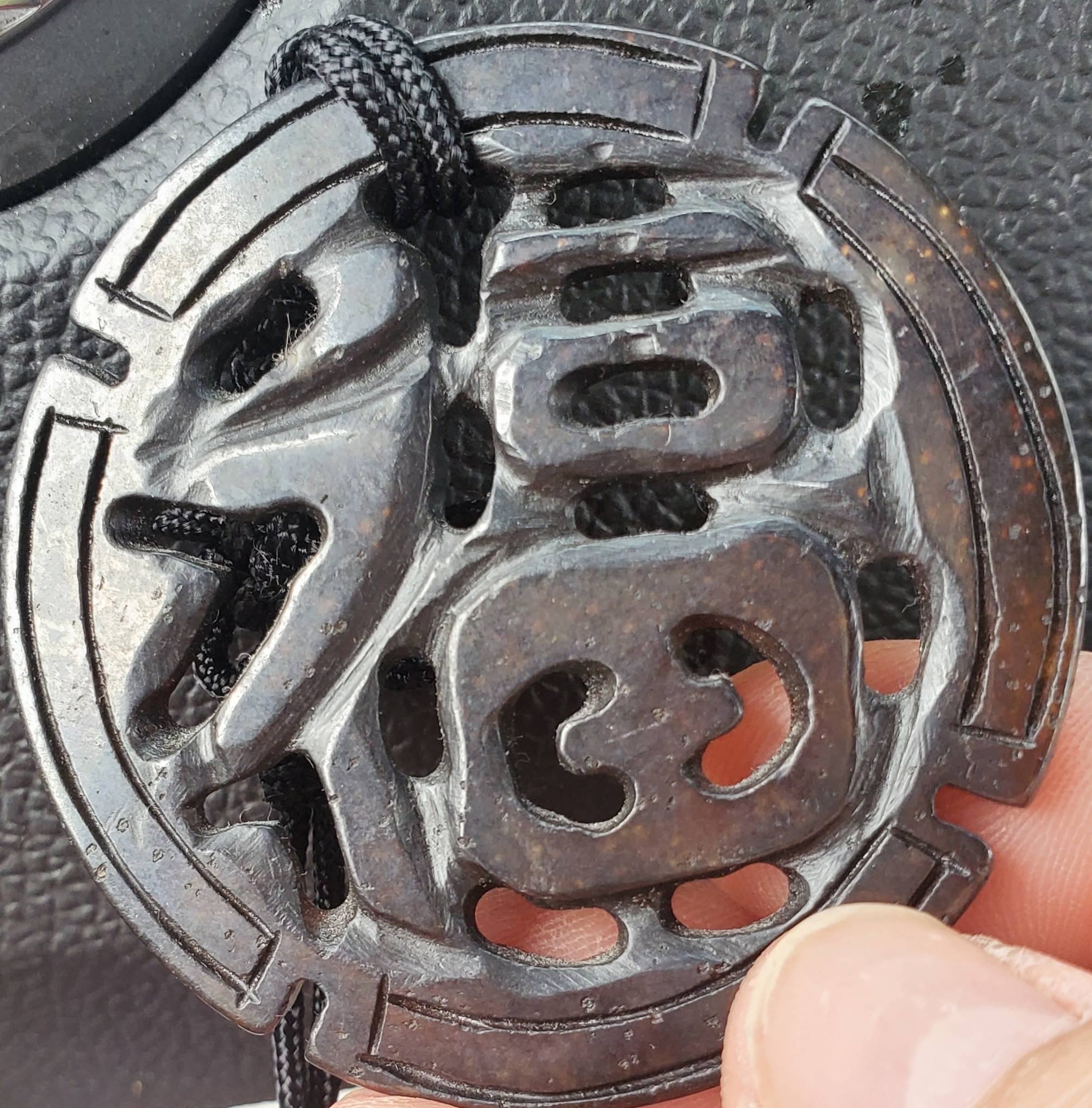I would like to know what language this is in. It's a pendant that belonged to my mother. I may be holding it backwards. 
-
2I don't think it is right to vote this down because it is simple, while those seal questions are basically the same thing. If the community decide to close this question, all seal related questions should also be closed.– RiverCommented Dec 9, 2021 at 14:18
-
@River - the difference between this basement level question and seal question is that the latter, (including inscriptions on old paintings), allows contributors to display their high level of linguistic, socio-cultural knowledge and research. As this is an informal forum, (almost a neighborhood social club), absolute regulatory strictures may be over-reacting. Your point certainly requires considerations among the Moderators. I am for moderation and trust in the wisdom of the Moderators as over-balancing either way harms this wonderful Forum. The 2 "likes" for you so far may mean something?– Wayne CheahCommented Dec 11, 2021 at 4:08
-
1And the reason I gave a lengthy answer to this simple question, which could be answered adequately in one short sentence, is that I feel the OP deserves more elucidation of the word beyond the basic meaning as a language carries within it many fundamental socio-cultural histories and philosophies of a nation that engenders it.– Wayne CheahCommented Dec 11, 2021 at 4:25
2 Answers
福 = Good Fortune, Blessed.
Why does this word means Good Fortune, Blessed?
Just for general interest, look at the word, (pronounced as fú,), carefully and you will see:-
--- on the left the radical 礻, (pronounced as "shì", originally written as "示") which denotes things of a spiritual nature, deities, etc, and thus by metaphorical association, things of an auspicious, spiritually positive nature. And as the Chinese practice ancestor worship, it therefore denotes the blessings bestowed by the ancestors who are present in spirit among the living. Thus the word for deity, god, 神 also has this radical.
--- on top is the word "一", meaning "one", "yī", (but pronounced as “héng" when used as a radical).
--- below this "一" are the words:-
--- "口", (pronounced "kǒu"), meaning "mouth", or "having food to eat“, and,
--- "田”, (pronounced "tián"), meaning "field" or "landed property",which in ancient times, actually even now, the opportunity to plant crops, principally rice, wheat, and thus long term sustainable survival.
So, put all the words and their putative meanings together, 礻, 一, 口, 田, you get the synergism:-
福, (Good Fortune, Blessed), which is the cumulative consequence of blessings from one's ancestors, god, as well as having landed property to plant crops and thus have food to eat.
As the Chinese would say 有一口饭吃, (Yǒu yī kǒu fàn chī), (have a mouthful of rice to eat), which in ancient China when starvation was an ever present threat it was truly good fortune and a blessing.
